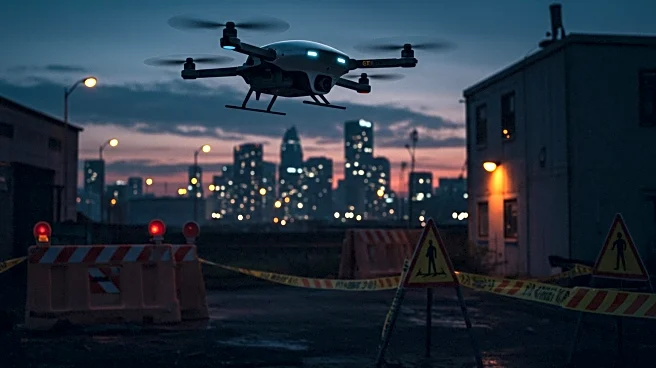What is the story about?
What's Happening?
In the current global economic climate, many organizations are adopting a 'wait and see' approach, delaying significant capital investments due to economic slowdowns, inflation, and tariff changes. This hesitation is particularly costly for companies operating transportation fleets, as it leads to a 'hesitation tax' that erodes profitability and compromises safety. The delay in upgrading aging equipment results in higher maintenance costs and increased operational expenses. Additionally, geopolitical factors such as trade tensions and tariffs on imported materials further increase the cost of new equipment. Modernizing fleets is crucial not only for financial reasons but also for safety, as newer trucks come equipped with advanced safety technologies that reduce accidents and improve fuel efficiency.
Why It's Important?
The hesitation to modernize fleets has significant implications for U.S. industries, particularly in transportation. Companies that delay upgrades face increased costs and safety risks, which can undermine their competitive advantage. The financial penalties of maintaining older fleets are compounded by rising tariffs and trade tensions, making future investments more expensive. Moreover, modernizing fleets enhances safety through advanced technologies, reducing accidents and operational costs. This strategic investment is essential for maintaining efficiency and competitiveness in the transportation sector, impacting stakeholders such as fleet operators, drivers, and consumers.
What's Next?
Organizations are encouraged to prioritize fleet modernization by reframing it as a strategic investment rather than an expense. This involves exploring flexible leasing options, integrated maintenance services, and multi-year procurement plans to mitigate risks and control costs. The restored 100% bonus depreciation rate offers tax incentives for leasing, making it an attractive option for companies. Accelerating fleet modernization is crucial to avoid future costs and gain a competitive edge, ensuring operational resilience and efficient product delivery.
Beyond the Headlines
The broader implications of fleet modernization extend beyond immediate financial and safety benefits. It represents a shift towards sustainable and efficient transportation practices, aligning with regulatory changes and environmental goals. By investing in modern fleets, companies contribute to reducing emissions and promoting safer working environments, enhancing their reputation and long-term viability.
















